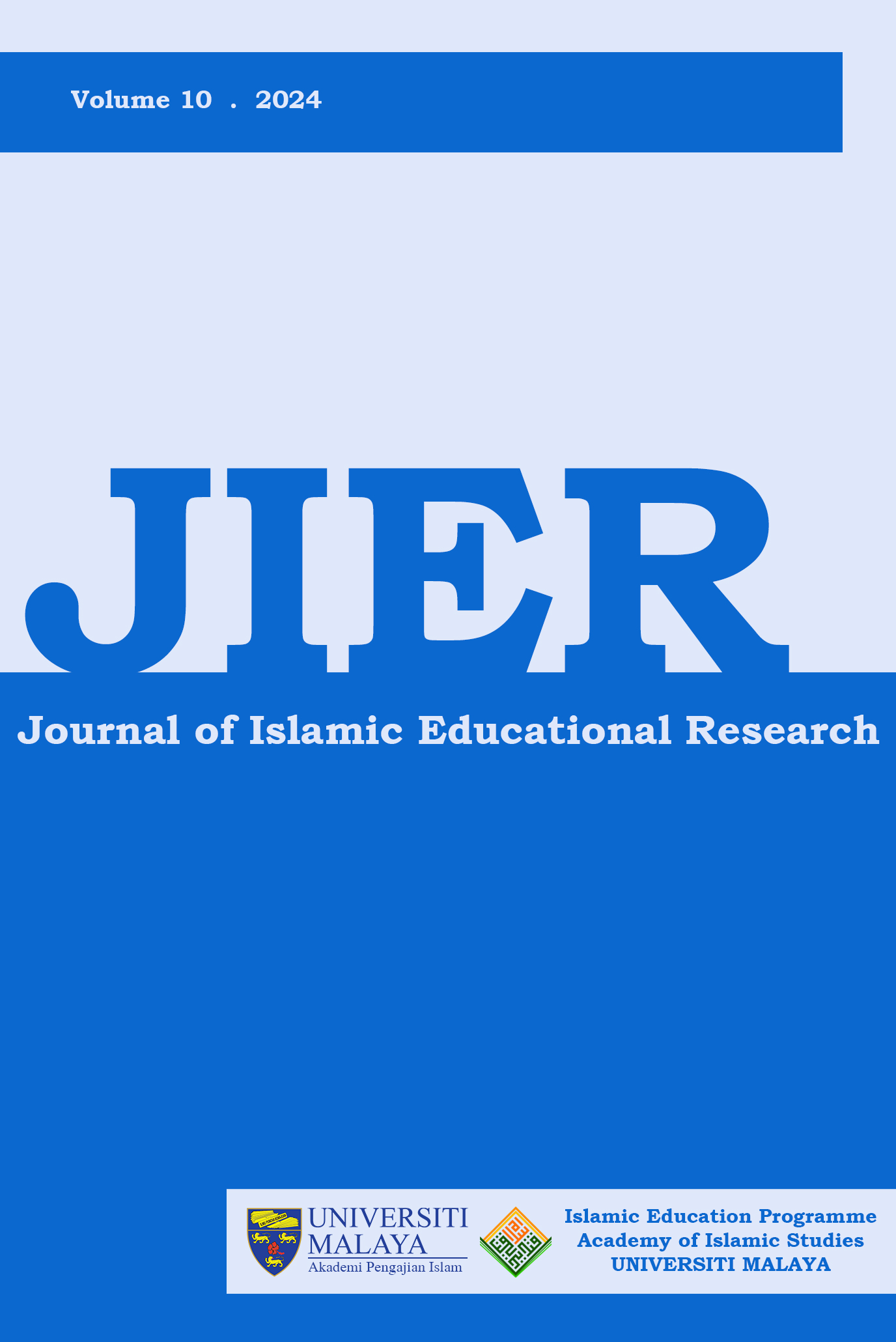The Role of Contemporary Teacher Education Institutions in Preparing Future Religious Teachers
DOI:
https://doi.org/10.22452/jier.vol10no1.6Keywords:
Academy of Islamic Studies, Islamic Education Programme, Religious Teachers, Teacher Education, Universiti MalayaAbstract
Malaysia is well-known for its diversity of ethnicity, cultures and religions, with Islam as the official religion at the federal level. In the context of Malaysia MADANI, education plays a crucial role, especially in maintaining the harmony of the country’s pluralistic society. Therefore, education continues to be empowered through modern teacher education institutes that train those in the teaching profession to produce individuals as agents to further the educational process. Educational institutions have existed for a long time and have developed through various institutions. Therefore, this writing aims to highlight the role played by the Academy of Islamic Studies, Universiti Malaya (APIUM) as a contemporary teacher education institution preparing prospective religious teachers who will lead education in this country. This study uses the literature review method involving content analysis of written materials such as academic journals, theses, books and so on. The results of the study prove that APIUM plays a significant role in providing quality future religious teachers and helping shape them as civic educators who will spread devotion and realize the aspirations of Malaysia MADANI.
Downloads
Downloads
Published
How to Cite
Issue
Section
License
The published manuscript shall be a copyright of the Islamic Education Programme, Academy of Islamic Studies, University of Malaya, Kuala Lumpur, Malaysia. The published manuscript would not represent the stand or opinion of the Advisory Board, Editorial Board, Co-Editorial Board and the Management Team of Journal of Islamic Educational Research (JIER), or the Islamic Education Programme, Academy of Islamic Studies, University of Malaya.
Note: This is an open access journal which means that all content is freely available without charge to the user or his/her institution. Users are allowed to read, download, copy, distribute, print, search, or link to the full texts of the articles in this journal without asking prior permission from the publisher or the author. This is in accordance with the BOAI definition of open access.






